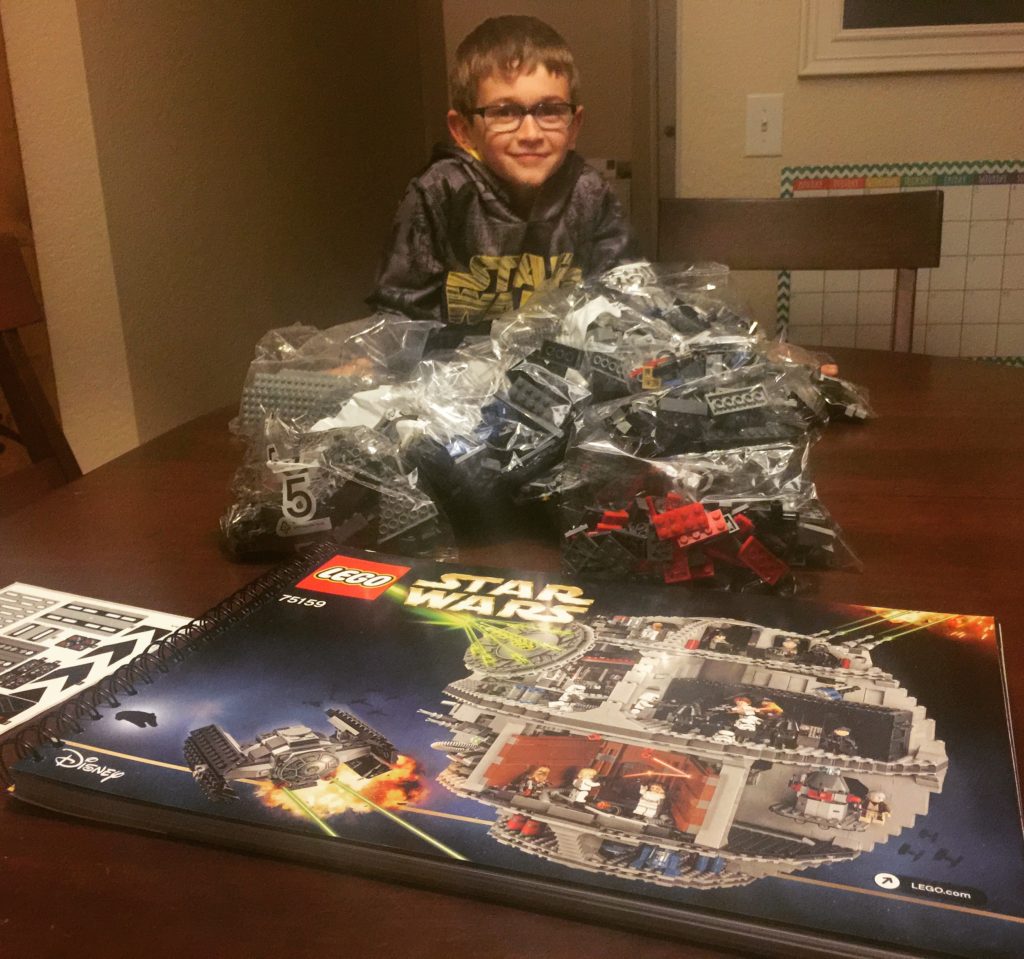4016.
That’s the number of pieces in the Lego set my son and I are building. It’s called the Death Star, and it’s even more epic than I anticipated. He saved his money for a long time to get it, and it hasn’t disappointed. Every single day, Rex asks if we can build a little more of it. So naturally, I’ve used it as the hook to “finish your homework then we can build a little.”
I love the time spent with my son, using our minds and our hands together. It’s good for his development, and for mine. It’s good for our relationship. And I’ve found that we can have meaningful discussions about the most important things in life while we’re working together…even more so than if we were to sit down and have a face-to-face talk. Boys seem to respond better talking side-by-side.
But enough about that.
Did you know that you can learn a little about leadership development* from Legos? (Actually, you can learn a bit about leadership from almost every aspect of life if you look for it.)
Six Leadership Development Truths Legos Teach
1. They don’t build themselves. No Lego set has ever spontaneously built itself.
No person has ever built themselves either. There are no truly self-made men/women. We are all a product of the communities where we live: our city, our church, the five people closest to us, our small group, our hobbies, our experiences, etc.
If you want to grow in your leadership, surround yourself with people who lead like you want to lead.
2. It’s as much about the process as it is the destination. We’re having as much fun building the set as we will ever have with the set once it’s “done.”
Development happens in the doing, not simply in the “learning.” It’s as you lead that you learn to lead. Books, seminars and Ted talks can only take you so far. I’ve heard it said that “community” is both the goal and the means of achieving the goal of the church. The same is true of leadership development.
Leadership development is both the goal and the means of achieving it.
3. The destination is vital. Without instructions, the Lego set is a bunch of mismatched pieces.
Knowing what you’re developing toward is important, otherwise you’re just spinning your wheels. But when you have a destination in mind, it gives you the freedom to know what to say yes to…and what to turn down. It points you in the direction you need to go. We are all lumps of clay in the hand of the potter, who makes of us something beautiful and useful, giving our daily grind purpose and meaning.
Without a destination, you’ll hit it every time.
4. Improvisation is crucial. We’ve lost so many of those pieces. And a blue 2×2 just adds character where a light gray 2×2 should be.
Leadership development is not simply a series of formulas you follow. You can’t check all of the boxes and magically be developed. The development happens as you improvise throughout life. That’s called wisdom.
Leadership is a purpose-driven art.
5. There’s a special tool for when you make mistakes. I love that Lego assumes you’ll make mistakes.
 Our development will be fraught with mistakes. And there’s a tool we need day after day after day: grace. Grace for others. And grace for ourselves. Grace that we’re not perfect, nor will we ever be. (There’s also a proactive tool to help us make fewer mistakes: constantly learning.)
Our development will be fraught with mistakes. And there’s a tool we need day after day after day: grace. Grace for others. And grace for ourselves. Grace that we’re not perfect, nor will we ever be. (There’s also a proactive tool to help us make fewer mistakes: constantly learning.)
Three times I pleaded with the Lord to take it away from me. But he said to me, “My grace is sufficient for you, for my power is made perfect in weakness.” Therefore I will boast all the more gladly about my weaknesses, so that Christ’s power may rest on me. —Paul, 2 Corinthians 12:8-9
6. It’s never done. There’s always another piece you can add to make it more awesome. And over time it breaks down, revealing more holes.
Leadership development isn’t a “thing” you put on your to-do list. It’s a process that changes throughout life, in different seasons, ups and down, highs and lows. Different seasons expose different weaknesses that invite more development.
Have the end in mind, but remember that the best leaders are always in development.
*Another word for “leadership development” is discipleship. Because we’re called as followers of Jesus to be disciples, constantly learning and growing in the way we know, love, follow and lead others to do the same.


